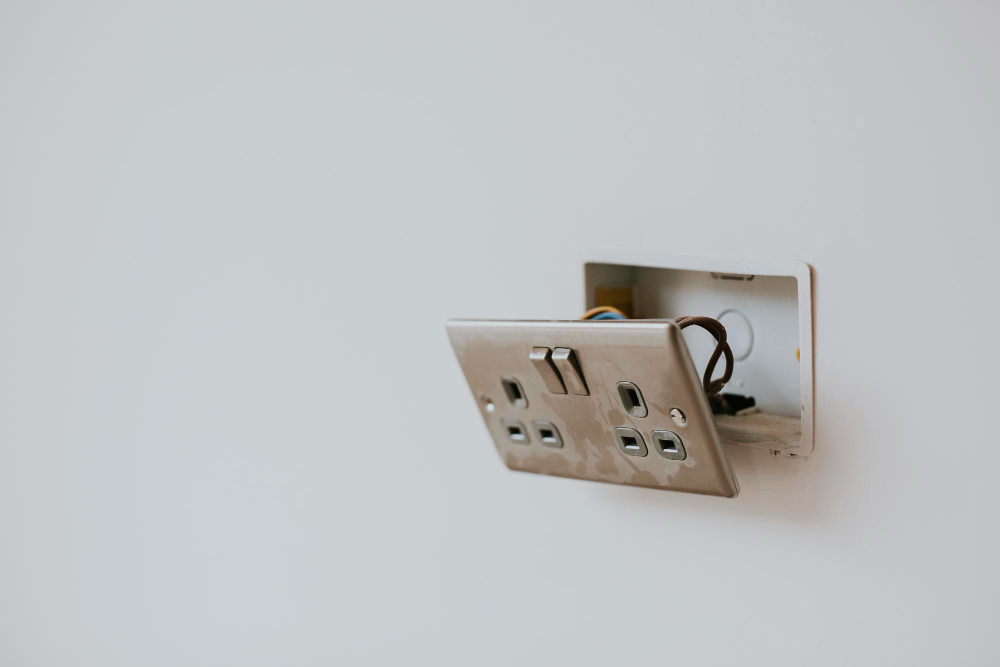Understanding Electrical Short Circuits: A Homeowner's Guide

From a flicker in the lights to the wonders of a toaster suddenly going silent, almost every homeowner will encounter the term "short circuit" at some point. But what does it actually mean? And, more importantly, how can understanding this phenomenon prevent serious electrical hazards in your home?
In this comprehensive guide, we’re going to break down what exactly an electrical short circuit is, why it happens, and what you — as a Winter Park, FL homeowner— can do to prevent or manage one. Whether you're a light DIY enthusiast or ready to call in professional electricians, this post will give you the grounding you need to handle this common electrical issue.
What is an Electrical Short Circuit?
Put simply, an electrical short circuit is a situation where electricity takes a path it wasn’t supposed to. This bypasses the normal operating load and, in the vast majority of cases, causes a surge of power which can lead to a fire or the destruction of electrical components and appliances.
Short circuits occur when a "hot" wire (a wire that is supposed to carry an electrical current) comes into contact with either a neutral wire (a wire with zero potential) or a ground wire (a wire connected to the grounding of the electrical system), completing a circuit pathway. This shortcut can occur within an appliance, a plug, the home’s electrical systems, or even underground power lines.
Why Do Short Circuits Happen?
Several factors can contribute to a short circuit. They range from manufacturing defects in electrical devices to human error during installation. Often, it's a combination of elements that causes the problem:
Overloading Circuits
Plugging too many devices into an outlet, especially high-wattage appliances, can draw more current than the circuit can handle, leading to overheating and potentially a short circuit.
Old, Damaged Wiring
Wires deteriorate over time, becoming frayed or exposed. If a hot wire comes into contact with the neutral or ground wire due to damage, a short circuit can occur.
Faulty Installation
Incorrectly installing wiring, outlets, or devices can lead to misconnections that result in a short circuit.
Usage of Incorrect Bulbs or Fuses
Using a higher wattage bulb than the fixture is designed to handle — or the incorrect fuse in electrical panels — can lead to an overload and result in a short circuit.
Water and Moisture
Moisture is conductive and can allow current to travel where it shouldn’t, causing a short circuit. This is why dealing with electrical systems in damp areas like bathrooms requires extra caution.
Signs of a Short Circuit
Knowing the common signs of a short circuit can help you act quickly to prevent potential damage or injury:
- Frequently Tripped Breakers or Blown Fuses: A circuit breaker is designed to trip when it senses an overload or short circuit to protect the circuit from overheating.
- Smell of Burning: This may be an electrical fire just starting. If you smell burning and believe it's electrical, you should act immediately by shutting off the power to the affected area.
- Sparks or Flames: This is a very serious sign of trouble. If you see any sparks or flames from an outlet or device, shut off the power to your home and call emergency services.
How to Handle a Short Circuit
If you suspect a short circuit, here are some steps to safely manage the situation:
- Turn Off the Power: The first step is to cut the power to the affected area by turning off the circuit breaker. This action can prevent further danger.
- Remove Overloaded Devices: If an overloaded outlet is the cause, unplug all devices, eliminate the reason for the overload, and redistribute the devices to other outlets, if possible.
- Inspect Wiring and Appliances: Carefully check for signs of damage in the wiring and appliances, such as frayed or exposed wire. Replace or repair as necessary.
- Call an Electrician: To ensure the issue is properly addressed, it’s best to call a licensed electrician. They will be able to identify the root cause and offer a safe and effective solution.
Preventing Short Circuits in Your Home
While some short circuits are inevitable and can occur due to various reasons like manufacturer's defects, there are measures homeowners can take to minimize the risk:
Regular Inspections
Regularly inspect your home’s wiring and appliances for signs of wear and tear. Pay particular attention to areas that might be more prone to moisture like basements and bathrooms.
Maintain a Cool Load
Be mindful of the electrical load on your circuits. Do not overload outlets by using too many devices or high-wattage appliances on a single circuit.
Use the Right Bulbs and Fuses
Always use the correct wattage bulbs in light fixtures and ensure that your home’s fuses are the right size for their respective circuits.
Keep the DIY Electrical Work Light
Unless you're a trained electrician, it’s best to leave major electrical work to the professionals. Incorrectly wiring a single outlet can create a short circuit situation.
When to Call a Professional
If you're experiencing repeated short circuits in your home, it's time to call in the experts. A professional electrician can identify the trouble areas and provide safe long-term solutions. Spectrum Electric Inc offers a team of experienced electricians in Winter Park, FL, ready to assist with any electrical needs.
Spectrum Electric Inc Can Help
Our team at Spectrum Electric Inc is equipped to handle all types of electrical issues, including short circuits. We specialize in residential services and can ensure your home’s electrical system is safe and up to code. Contact us today for a consultation or to schedule a service call.
Remember, when it comes to electrical short circuits, safety should always be the number one priority. By being vigilant, understanding the causes and signs, and maintaining a cautious approach, you can keep your home safe from electrical hazards.
